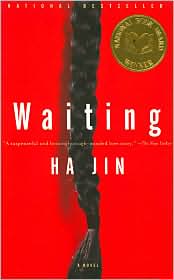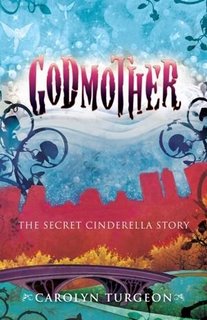(It's always fun to see what everyone else is reading.)
WALL STREET JOURNAL BEST-SELLERS
FICTION
1. "Breaking Dawn" by Stephenie Meyer (Little, Brown)
2. "Eclipse" by Stephenie Meyer (Little, Brown)
3. "Devil Bones" by Kathy Reichs (Scribner)
4. "The Gypsy Morph" by Terry Brooks (Del Rey)
5. "Twilight" by Stephenie Meyer (Little, Brown)
6. "The Guernsey Literary and Potato Peel Pie Society" by Mary Ann Shaffer, Annie Barrows (The Dial Press)
7. "The Host" by Stephenie Meyer (Little, Brown)
8. "New Moon" by Stephenie Meyer (Little Brown for Young Readers)
9. "Silks" by Dick Francis (Felix Francis Putnam)
10. "The Story of Edgar Sawtelle" by David Wroblewski (Ecco)
11. "Star Wars: The Force Unleashed" by Sean Williams (Del Rey)
12. "Robert Ludlum's The Bourne Sanction" by Eric VanLustbader (Grand Central Publishing)
13. "Smoke Screen" by Sandra Brown (Simon & Schuster)
14. "The Laughter of Dead Kings" by Elizabeth Peters (William Morrow)
15. "Moscow Rules" by Daniel Silva (Putnam)
NONFICTION
1. "The Last Lecture" by Randy Pausch, Jeffrey Zaslow (Hyperion)
2. "Stori Telling" by Tori Spelling (Simon Spotlight)
3. "StrengthsFinder 2.0: A New and Upgraded Edition of the Online Test from Gallup's Now, Discover Your Strengths" by Tom Rath (Gallup Press)
4. "The Secret" by Rhonda Byrne (Atria Books/Beyond Words)
5. "The Obama Nation" by Jerome R. Corsi (Threshold Editions)
6. "Six Disciplines Execution Revolution" by Gary Harpst (Six Disciplines Publishing)
7. "Are You There, Vodka? It's Me, Chelsea" by Chelsea Handler (Simon Spotlight Entertainment)
8. "When You Are Engulfed in Flames" by David Sedaris (Little, Brown)
9. "The Case Against Barack Obama: The Unlikely Rise and Unexamined Agenda of the Media's Favorite Candidate" by David Freddoso (Regnery)
10. "Good to Great: Why Some Companies Make the Leap ... and Other's Don't" by Jim Collins (Collins)
11. "Who Moved My Cheese? An Amazing Way to Deal with Change in Your Work and in Your Life" by Spencer Johnson (Putnam)
12. "Fleeced" by Dick Morris & Eileen McGann (Harper)
13. "You: Staying Young: The Owner's Manual for Extending Your Warranty" by Michael F. Roizen and Mehmet C. Oz (Free Press)
14. "The One Hundred" by Nina Garcia (Collins Living)
15. "Four Hour Work Week" by Timothy Ferriss (Crown)
The Wall Street Journal's list reflects nationwide sales of hardcover books during the week ended last Saturday at more than 2,500 Barnes & Noble, B. Dalton, Bookland, Books-a-Million, Books & Co., Bookstar, Bookstop, Borders, Brentano's, Coles, Coopersmith, Doubleday, Scribners and Waldenbooks stores, as well as sales from online retailers Amazon.com and barnesandnoble.com.
Labels: Balancing the Books, best-sellers, fiction, non-fiction, Wall Street Journal

 RSS
RSS











